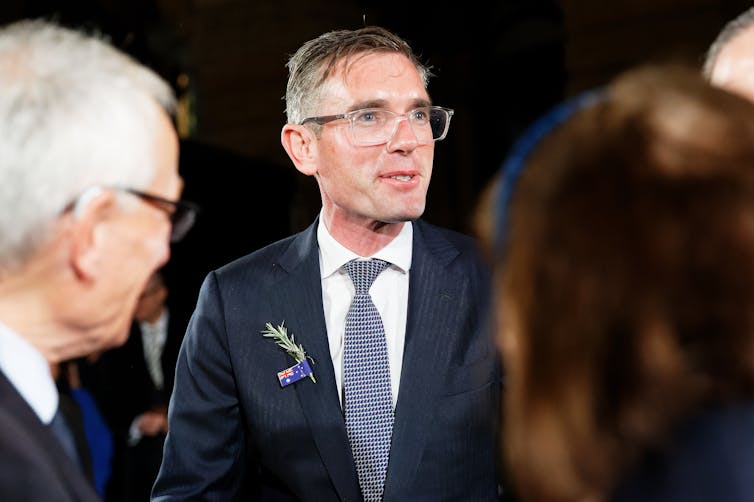Source: The Conversation (Au and NZ) – By Charles Livingstone, Associate Professor, School of Public Health and Preventive Medicine, Monash University

The centrepiece of the Andrews’ government pokie reform announcement is the introduction of a carded system for users of poker machines.
Such a pre-commitment system will require pokie users to register for an account linked to a gaming card which will record a limit of how much they are prepared to lose daily, weekly and monthly.
Once that limit has been reached, the system will not allow further gambling.
Because all pokies in the state are linked, this limit will apply across machines and across venues.
Other proposed reforms include:
• slowing down the spin rate of new machines to a minimum of three seconds (currently 2.14 seconds)
• requiring all venues close between 4am and 10am
• reducing the “load up limit” (the amount that can be credited on a poker machine at any one time) to $100, down from the current $1,000
• the transfer of significant education, research funding, and counselling services away from the Victorian Responsible Gambling Foundation.
The government says it wants to undertake “thorough consultation with industry through an implementation working group” before the pre-commitment and reduced load up limits are introduced. This will be a red flag for many public health researchers and practitioners working in gambling harm prevention.
The power of vested interest groups
Harmful commodity industries – tobacco, alcohol, highly processed foods, and gambling – are well resourced. They have a long history of thwarting or watering down important reforms.

Shutterstock
For this reason, the World Health Organization urges its members to protect people from the commercial interests of tobacco. This includes rejecting partnerships with industry.
The more time they have, the more likely the gambling industry is to campaign with their considerable strength against these reforms. This worked with great effect in 2010-11 against the then Gillard government’s proposals for a similar harm prevention system.
Read more:
Australia has a strong hand to tackle gambling harm. Will it go all in or fold?
Misinformation, disinformation and endlessly disputing the scientific evidence are all tobacco industry tactics. They delayed reform for many years.
Consulting with a harmful commodity industry on the design of a new system is like consulting with the fox over the design of the new hen house. It’s not going to produce a solution.
It is also puzzling that the government needs to consult on how to introduce precommitment. A voluntary system called YourPlay has been in place for some years, and provides all necessary functions. However, because it’s voluntary, it has very low uptake, and is potentially stigmatising.
For these reasons, it doesn’t achieve what it could. But this system could readily be converted into a universal system.
Doing so would provide pokie users with a set of tools to manage their gambling. This will be particularly useful for those concerned about descending into the spiral of harmful gambling. It is a definite preventive intervention.
Measures being introduced locally and overseas
In Tasmania, the Liberal government surprised all by announcing last year that a pokies pre-commitment system would be introduced by 2024.
The system would apply on all machines in the state from December 2024. It would impose maximum limits of $100 per day, $500 per month and $5,000 per year. Notably, the announcement surprised the gambling industry, which had campaigned fiercely for the Liberal Party in the 2018 Tasmanian election. The system will be provided on a fee-for-service model to venue operators.
In NSW, the former Dominic Perrottet coalition went to the 2022 poll with a detailed proposal to introduce a cashless precommitment system for the state’s pokie venues. This was opposed by the gambling industry – notably the [Australian Hotels Association, and the peak body for clubs, ClubsNSW.

Shutterstock
The then ALP opposition backed the industry position, promising a trial of cashless pre-commitment, along with some minor reforms. These ban signage for VIP lounges (code for pokie rooms) and reduce the load-up limit on new machines to $500.
The expert panel to guide the cashless trial in NSW was announced on 13 July 2023. The trial itself is yet to begin.
A system providing precommitment for all forms of gambling in Norway was introduced in 2009. This has been regarded as a notable success, and a similar system has been implemented in Sweden.
Closer to home, the report of the House of Representatives committee inquiring into online gambling in Australia was published recently. It urged the Australian government, among its 31 recommendations, to explore mandatory pre-commitment for online gambling. It also proposed a National Regulator to provide uniform national regulatory standards for gambling.
There’s no doubt momentum for significant reform of gambling is building in Australia. The drivers for this are to be found in the increasing awareness of the nature and extent of gambling harm. This includes the costs of money laundering and associated criminal activity which imposes great harm on the community.
In NSW, the 2022 Crime Commission report into money laundering in pokies clubs and pubs sounded a major alarm. But, more generally, a new focus on using a public health lens to view gambling harm is a major development. The industry’s favoured approach, “responsible gambling”, blames vulnerable individuals for the problem.
Read more:
4 gambling reform ideas from overseas to save Australia from gambling loss and harm
A public health view means the focus is on harmful products, and the way they are marketed, made accessible, and cause harm.
Getting the reforms through
If these reforms are implemented in full, they will dramatically reduce harm. What worries the gambling industry is that it will also reduce their profits, probably quite significantly. This is because their best customers are people experiencing significant harm from the use of their products.
Pokies are responsible for between 51% and 57% of the gambling problems in Australia.
For this reason, tackling pokie harm is an obvious step. Unfortunately, the gambling industry will not accept these changes quietly. Past experience suggests a concerted effort from industry to derail the reforms though procrastination and delay.
The Andrews government already has the wherewithal to implement these reforms quickly. If it’s genuinely committed to reducing harm, it should do so, without further delay.
![]()
the Victorian Responsible Gambling Foundation, the (former) Victorian Gambling Research Panel, and the South Australian Independent Gambling Authority (the funds for which were derived from hypothecation of gambling tax revenue to research purposes), from the Australian and New Zealand School of Government and the Foundation for Alcohol Research and Education, and from non-government organisations for research into multiple aspects of poker machine gambling, including regulatory reform, existing harm minimisation practices, and technical characteristics of gambling forms. He has received travel and co-operation grants from the Alberta Problem Gambling Research Institute, the Finnish Institute for Public Health, the Finnish Alcohol Research Foundation, the Ontario Problem Gambling Research Committee, the Turkish Red Crescent Society, and the Problem Gambling Foundation of New Zealand. He was a Chief Investigator on an Australian Research Council funded project researching mechanisms of influence on government by the tobacco, alcohol and gambling industries. He has undertaken consultancy research for local governments and non-government organisations in Australia and the UK seeking to restrict or reduce the concentration of poker machines and gambling impacts, and was a member of the Australian government’s Ministerial Expert Advisory Group on Gambling in 2010-11. He is a member of the Lancet Public Health Commission into gambling, and of the World Health Organisation expert group on gambling and gambling harm. He made a submission to and appeared before the HoR Standing Committee on Social Policy and Legal Affairs inquiry into online gambling and its impacts on those experiencing gambling harm.
– ref. Victoria cracks down on pokies but supporters fear interest groups could hold the winning hand – https://theconversation.com/victoria-cracks-down-on-pokies-but-supporters-fear-interest-groups-could-hold-the-winning-hand-209857





